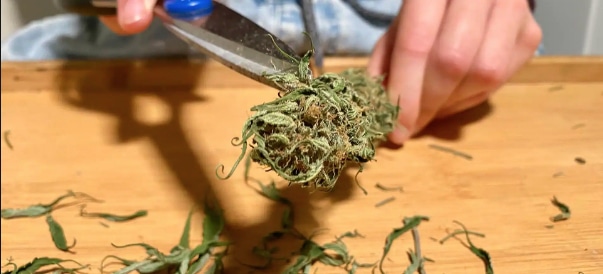The results of the European Internet Survey by the European Monitoring Center on Drugs and Drug Addiction (EMCDDA) have been published. The results showed that the usage patterns were most affected by the restrictions imposed by the pandemic COVID-19 is cannabis and ecstasy.
In particular, the European Internet Drug Survey showed that during the enforcement of pandemic measures Covid-19, increased cannabis use and at the same time reduced the prevalence of substances used and in particular ecstasy.
The survey was conducted between March and April 2021 in 30 countries (21 EU countries and 9 non-EU countries), including Cyprus. During this time, many Europeans were severely restricted by the COVID-19 pandemic.
It aimed to improve the understanding of patterns of illicit drug use in Europe and to shape future policies and interventions.
Key Findings from 50 Europeans About 000 adults (50) participated in the survey. Cannabis was the most widely used substance, with 000% of those surveyed saying they had used it in the past 48 months, with little variation between countries.
Ecstasy (35%), cocaine (35%) and amphetamines (28%) were the next most frequently reported illicit substances, with the order of the three substances varying by country. About a third of respondents (32%) reported using more cannabis and 42% reported using less ecstasy. Also one in five people (20%) reported LSD use in the last year, 16% new psychoactive substances (NPS) and 13% ketamine use. Heroin use was reported by 3% of respondents. Although online surveys are not representative of the general population, when carefully conducted and combined with traditional data collection methods, they can help to create a more detailed, realistic and timely picture of drug use and markets in Europe. More than 100 organizations participated in the research, including the National Center National Documentation and Information Center of Cyprus (EKTEPN), AAEK and Cyprus Information (EKTEPN), AAEK.
Key findings from 606 Cypriots
606 Cypriots participated in the research. Eight out of ten were men and the rest were women, most of them in the 18-35 age group.
The local results are similar to the European ones, as cannabis was the most used substance, with 97% of Cypriot participants reporting that they had used it in the previous 12 months. Also, a large percentage of Cypriots (40%) reported using more cannabis during the restrictive measures and 40% reported using less ecstasy. EMCDDA Director Alexis Goosdeel said: “Online research is a key tool for monitoring the changing problem of substance abuse in Europe. They help us reach a significant target population through innovative online methods. Today's results reveal the wide variety of addictive substances available throughout Europe and provide valuable information on emerging trends and changing patterns of use during the pandemic. COVID-19. An impressive number of 100 organizations have joined us this time to create, translate and promote research, ensuring that it is now an invaluable tool in helping to shape future drug policies. "
The President of the Cyprus Addiction Treatment Authority stated that “Cyprus has successfully participated in the European Internet Survey. With a very satisfactory sample of 606 people it will effectively contribute to shaping future policies at both European and local level. I am confident that this "European Research Alliance" will enhance our knowledge of substance use patterns and consumption levels in Europe and Cyprus, while clearly demonstrating how online research methods have much to offer, especially in times of crisis. and the imposition of restrictive measures, where no other methodologies can be applied. The assessment of the real needs of the society is achieved through research and is a precondition for the development of scientifically substantiated policies and interventions ".
KYPE source
